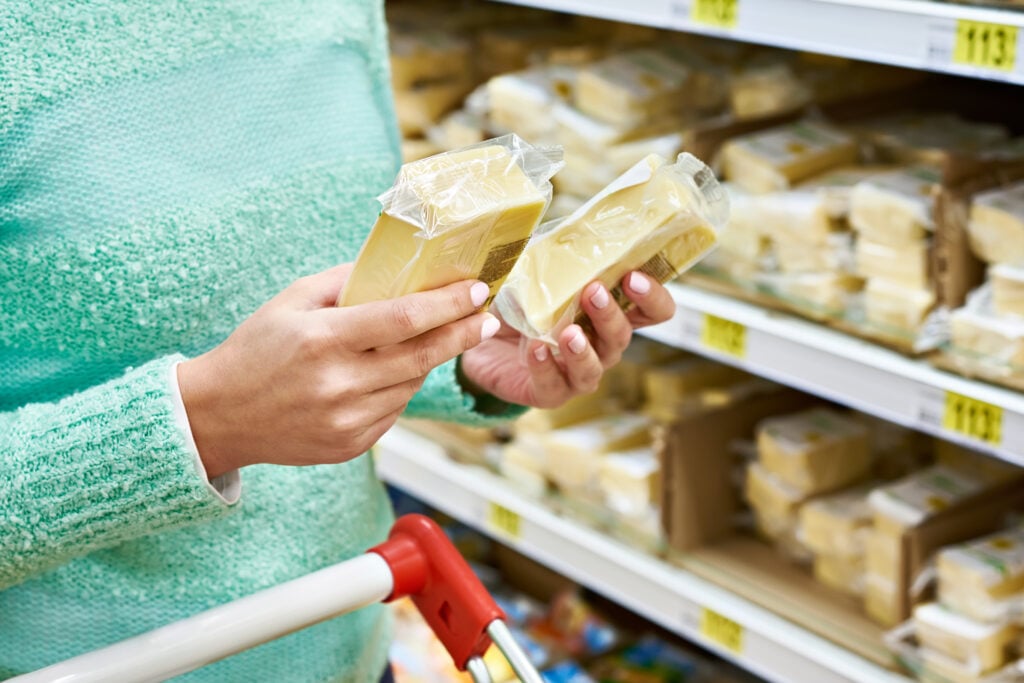A UK politician is pushing for food to be given “eco-labels” as a low-cost but high-impact way to cut the UK’s emissions.
Conservative MP Chris Grayling previously floated a Private Members’ Bill in 2019 on the same subject. Now, he looks set to speak with the environment secretary Thérèse Coffey.
The revived interest in labeling foods to reflect their environmental impact comes after a debate held in the Houses of Parliament in October.
Participating in the event, called “The Climate of Food,” carbon calculating company Reewild argued that transparency surrounding food production needed to be drastically improved. This would allow consumers to make informed choices that could benefit the climate.
“This is the first step in our journey to build a coalition and a consensus on rolling out a unified UK-wide approach to eco-labels,” Kit Nicholl, co-founder and COO of Reewild said in a statement.

“With the right information, consumers can and will use their purchasing power for good. This in turn can accelerate a cycle in which businesses are also incentivised to lower their emissions in order to satisfy that growing demand for greener goods.”
Reewild was supported by food industry coalition the Plant-Based Food Alliance, Chris Grayling, and fellow Conservative MP Henry Smith. Also in attendance were various food industry experts, including representatives from dairy conglomerate Danone and global research firm the World Resources Institute.
All participants appear to have been open to finding a route to widespread eco-labeling rollout in the UK.
The need for a unified approach
Some brands have taken it upon themselves to start printing their impact on product packaging. However, Reewild claims that consumers are driving demand for the practice to become the norm.
With food production responsible for around 37 percent of greenhouse gas emissions, the current food system is impacting the climate. If consumers were aware of the lower emissions associated with plant-based foods, there might be a swing to animal-free diets. This would vastly improve the environmental crisis.
Such information would be clearly displayed if new labeling systems are implemented.
Eco-labeling has been proven to work
Reewild reports that eco-labeling is an effective methodology for changing consumer habits. The organization claims that lower impact products are selected up to 50 percent of the time when eco-labeling is used. As a result, alongside the Plant Based Food Alliance, Reewild is calling for a UK-wide mandate on such packaging changes.
France and Denmark are both in the process of making food impact labels a legal requirement. They are expected to usher in the practice in 2024






